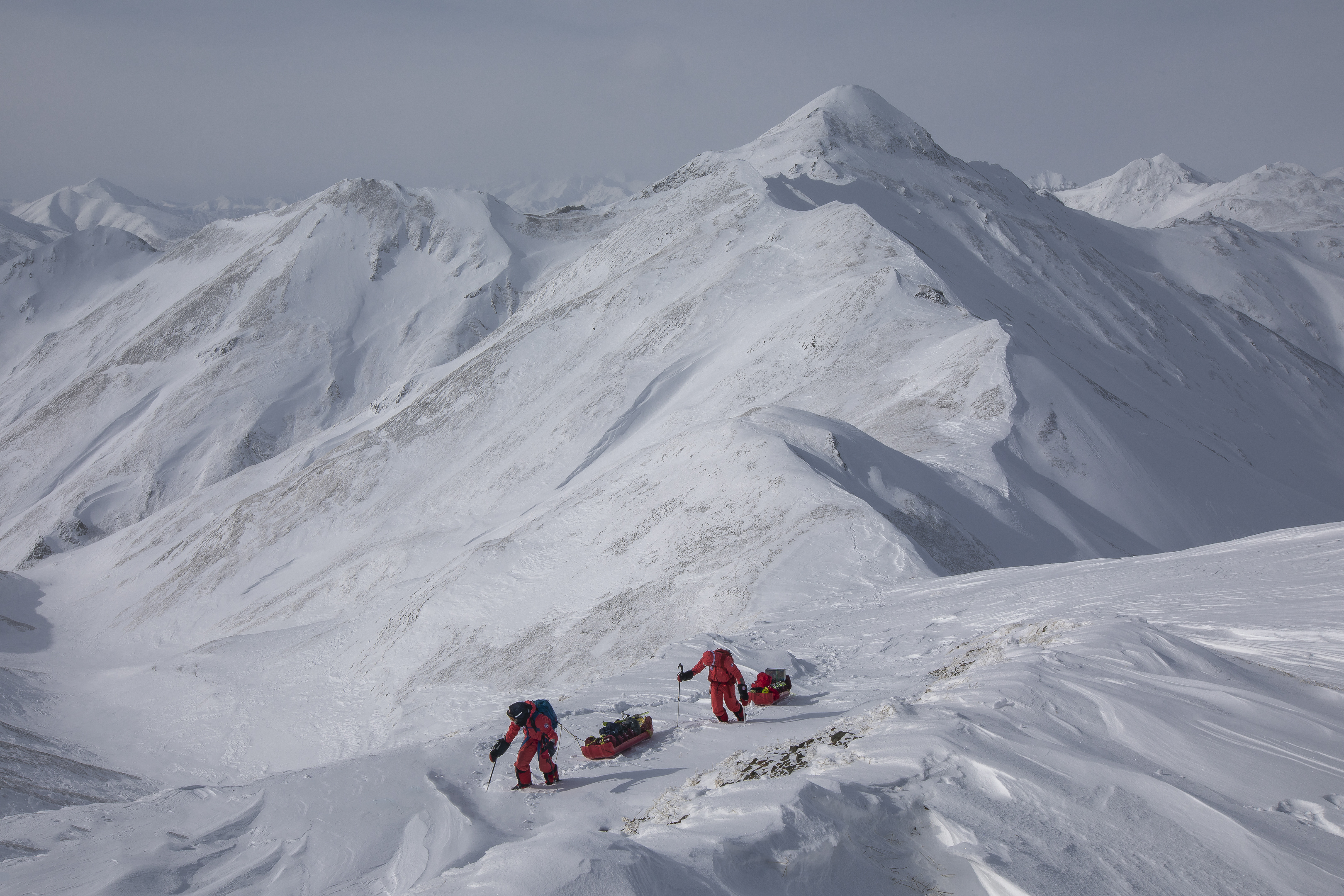Knowing When ‘It Just Isn’t Going to Happen’

Last year, when we successfully completed our 1,850km expedition across the Namib Desert, I remember thinking, as I always have after any one of my expeditions, that it was specific components and pieces of the adventure that made it so epic. We overcame and succeeded in some very difficult situations, and had a few close calls, too. Finishing is a reward that I try to never take for granted.
Not finishing our crossing of Kamchatka never entered my mind, until Day 19 of our expedition.
After exiting the mountain passes we’d been working so hard to reach, our goal refocused on heading east to communities Milkovo and Kirginik. But before beginning the last piece of our expedition, we met for the first time with our team and also local hunters. It had been unusually and incredibly warm—already a bad sign. The word was that all the rivers, some large, fast moving and deep, which we had to cross to reach the eastern coast, were all open. The grim reality was that we would have a series of river crossings, with the largest and most dangerous braid, about 30km into the frontier, which we’d reach after traversing a mountain pass, and narrow mountain valleys, each with rivers and streams of their own. These rivers, ice-free, now posed a natural physical barrier. The risk was way too high, and it would be foolish to chance life in trying to cross these open rivers. Compound that with the fact that I am not comfortable putting others at risk for potential rescue, because I would have to choose our egos ahead of sensibility in pushing ahead.
I have completed more than a dozen successful expeditions both supported and unsupported across the world’s deserts, Arctic, Siberia, and Antarctica totaling more than 14,000km covered on foot. I share this with you because what I have hopefully learned from all of these trips—from all of this experience—is to know when “it just isn’t going to happen.”

We had spent close to three weeks navigating and traversing Kamchatka’s epic wilderness unsupported, taking calculated risks on thin ice with open moving water all around us, deep snow, and through abnormal conditions we didn’t expect. I pushed myself harder over those three weeks than three weeks on any other expedition. We were and are in top physical and mental condition, our gear perfect, and aside from eating all of our food and five-day extra supply—due to extra caloric expenditure—we were so pumped and excited to continue. We took a food resupply (this meant we were now supported versus unsupported, but both felt that the minute we skied on hunter tracks a week earlier that we became assisted were no longer unsupported) and were refocused on completing the last third of the expedition, after the more difficult first two-thirds were completed and now behind us. But, given the local knowledge of the rivers being open, which crisscross the entire east side of Kamchatka like a spider’s web, we decided it was no longer safe to continue. I guess it helped when one of the hunters who didn’t speak English did the “you’d be crazy” hand gestures. We were ready and adapted, and in any other year with a regular colder winter and a bit of ice, we’d certainly push the limit and get it done.
Stefano has three daughters, I have two. My oldest, Mia, is already expressing an interest in big adventures in the future. Adventure and being an explorer is not only my livelihood, it’s my passion. But making good decisions and setting that example to my daughters and being alive for them trumps everything else. I also mentor youth adventurers with impossible2Possible, and want them to learn to challenge themselves but also mitigate danger. Of course, I take huge risks, and I’ve had some really close calls. It’s part of the job and it’s one if the exhilarating components of being on an expedition in a place that is so wild and little explored. But it’s “well-planned” risk, with an emphasis on using all of my knowledge base and gut instinct to make the right decision or call when it needs to be made, and not simply throwing caution to the wind in order to prove something.

So, there you have it. Our expedition ended on the outskirts of Milkovo. Given any other year, we’d be finishing in the Pacific. We are obviously very sad we couldn’t continue, but that’s adventure. That’s true exploration. And sometimes things just don’t go the way you want them to, and when Mother Nature says you are done, you are done.
I continue to learn on every expedition I undertake, and my passion for adventure grows with every place I am so fortunate to explore. I returned home to my family, and as with any expedition I have completed, I shared stories with my daughters about some of the amazing things we experienced in the Russian wilderness. And just as with all of those past expeditions, it’s the specific components and pieces of the adventure that made it so epic.
Next up? A crossing of Death Valley in the middle of summer, off-road. Just a slight difference in conditions.
See more photos, videos, and stories by visiting the expedition website and Ray Zahab’s Facebook page.
